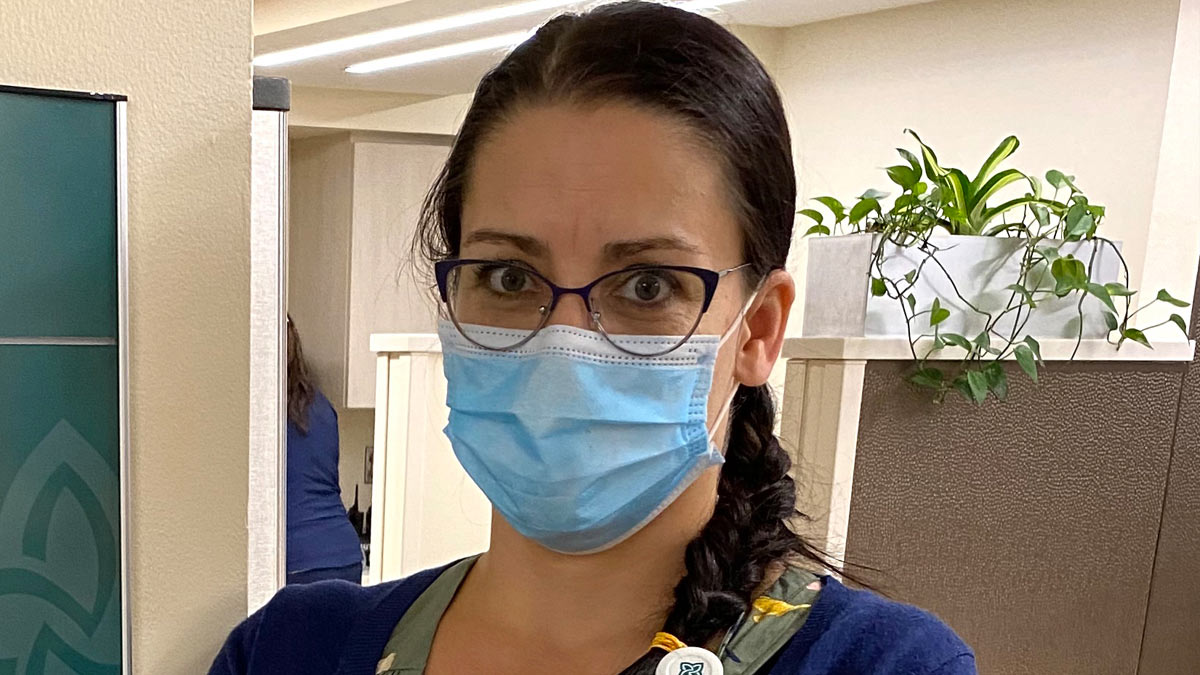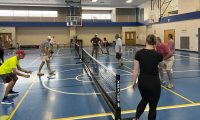No one knows the coronavirus like a doctor who deals with patients diagnosed with it every day. That’s what Dr. Angela Taylor, facility medical director for the hospital medical team at Trident Medical Center, faces day in and day out since the pandemic began.
“It’s hard to be a COVID patient,” Dr. Taylor explained. “They are feeling bad, and they can’t see my face because I am completely covered in PPE. They can hardly see my eyes. I can’t even talk well to them because of the mask. And they can’t see their loved ones.”
Dr. Taylor noted the sense of loneliness that she knows these patients are suffering with from not being able to have visitors.
“Thank God for iPads,” she added.
She has seen firsthand how the virus has evolved and changed as well.
“We are definitely testing more. That’s one major change since we first started seeing patients diagnosed back in the spring. And the symptoms are broadening as well. We are seeing more nausea now, too, as a major symptom.”
She said that the definite uptick in cases were in nursing homes or any type of group home atmosphere.
“Just being in those close quarters, right off the bat we knew that was high risk,” she said, going on to say that she also has seen asymptomatic COVID-19 positive cases. “Sometimes the patients who are asymptomatic come back later with symptoms, so it definitely affects people differently.”
Dr. Taylor explained that most people testing positive for COVID-19 are not admitted to the hospital and most of them that are admitted do not have to be ventilated.
“We have more nonventilated patients then ventilated,” she pointed out.
Also, many patients who do end up in the hospital are there for varying lengths of time, “some for just a week and some much longer.”
Dr. Taylor has even seen patients discharged who later have to come back because they got sick again. She warned of trusting the antibody test.
“There is no evidence at this time on how long the antibodies will protect you. Could be 30 days, 60 or 90 days, but, since there are different strains of the coronavirus, it is best not to trust a positive antibody test.”
She definitely suggests wearing masks in public, social distancing and hand washing. And she said that people should self-quarantine for at least 14 days if they think they have been exposed – longer if they test positive because it would be three days since their last symptom.
Dr. Taylor believes that wearing a mask will significantly lower your risk of catching the virus, noting that “without a mask, your risk of getting it is huge.”
“This has taken a strain on everyone,” she added. “I get it. People expected this to be over in a month and now here we are.”
She warned that people should get tested if they have a fever, shortness of breath, nausea, vomiting or diarrhea, but she said “there are a host of other symptoms.” Dr. Taylor has taken her own precautions as well: “I isolate at home because I know I have been exposed, and I don’t want to spread it to others.”
So many of her co-workers have rituals where they have to take off all their clothes the second they get home, wash them and take a shower. And, she said, they are constantly cleaning. She pointed out that her co-workers are being told they can’t seek medical care because of their jobs in health care and their known exposure.
“It is inevitable that we will all be exposed. I don’t see any other way around it. This virus isn’t going away anytime soon, and we all really need to look closely at how we are behaving in our everyday lives. If you don’t want to wear a mask, just think about how you could give it to someone, and they could die. Your symptoms might be mild, but, for someone else, it could be deadly,” Dr. Taylor concluded.
Listen to our podcast channel for more information on this subject.
By Theresa Stratford







